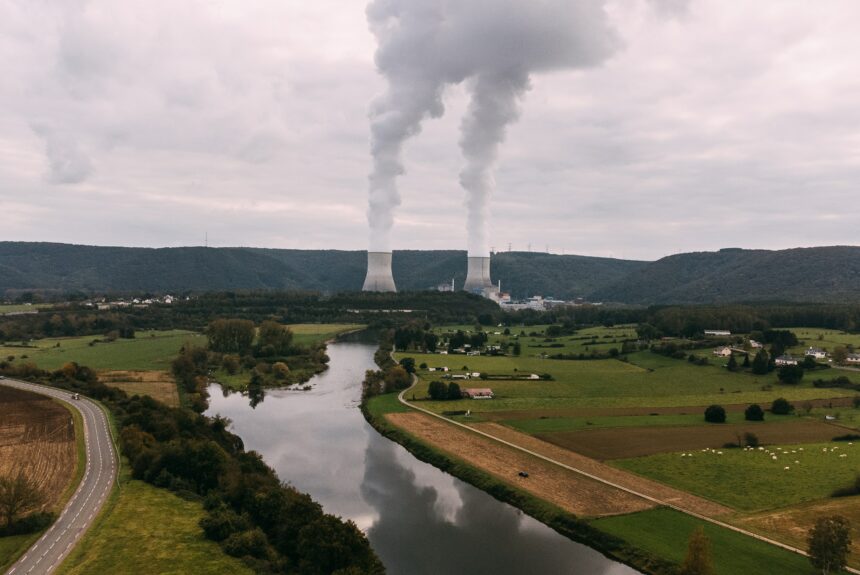The United States and many European nations have set lofty environmental goals. From carbon neutrality to clean energy targets, the goals run the gamut. But as more and more nations begin to embrace nuclear power both at home and internationally, can cross-Atlantic private nuclear partnerships also bring about nuclear advancement?
In the public sector, the United States government has narrowed in on nuclear energy, both here at home and overseas. Here in the U.S., the Inflation Reduction Act was hailed by many progressives as a necessary climate act, even as it was denounced by fiscal conservatives. The new law contains tax breaks for nuclear. Starting in 2024 and running through 2032, utilities can receive a tax credit of $15 per megawatt hour for electricity produced at existing nuclear facilities. If a new nuclear plant comes online, utilities can receive $25 per megawatt hour for the first 10 years of the plant’s operation.
>>>READ: The Clean Energy Startup at the Forefront of the Second Nuclear Revolution
As it seeks to spur domestic nuclear energy production, the U.S. government is also looking across the ocean. One example is the Partnership for Transatlantic Energy Cooperation (P-TEC), an initiative launched by former U.S. Department of Energy Secretary Rick Perry in 2018, which started the Civil Nuclear Energy Working Group. This U.S. Department of Energy-based working group has connected with European nations to coordinate nuclear projects.
European governments are also focusing on nuclear. Perhaps the most prominent recent case is that of Germany. During the first half of 2022, nuclear power was reduced to a mere 3.1 percent of Germany’s energy makeup, and the last three nuclear plants in the country were slated for closure this year. Meanwhile, Germany’s consumption of natural gas quickly grew. The German government has now reversed course and will keep its remaining nuclear plants online until April. And Germany is not alone in European efforts to maintain nuclear production.
Nuclear progress is nuclear progress. However, free-market environmentalists know that lasting, positive strides forward in the energy sector must be driven by the private sector, not by the government. While governments certainly have an interest in international nuclear power partnerships to help meet climate goals, cross-Atlantic nuclear development partnerships rooted within the private sector could be even more impactful.
>>>READ: As Europe Faces an Energy Crisis, Nuclear Power Gains Momentum
One such private sector partnership was recently highlighted by The Heritage Foundation’s Anthony B. Kim. In 2019, Romania stopped nuclear reactor talks with China and instead turned to the United States. Kim recently wrote about that move:
“Since then, the strategic move has led to a pioneering commercial partnership between NuScale Power, a U.S. firm based in Portland, Oregon, and Romanian utility company Nuclearelectrica that has been at the focal point of enhancing America’s practical engagement with Romania. The ongoing collaboration toward the deployment of a NuScale small modular reactor plant at the site of a coal facility being retired will help support Romania’s plan to phase out coal-fired energy production while supporting the U.S.-Romanian strategic partnership on civil nuclear energy deployment.”
Belgium-based publication Science|Business also recently discussed cross-Atlantic nuclear partnerships. Speaking to experts, the piece notes that private investment in nuclear, particularly cross-Atlantic nuclear, is beginning to increase. This investment has historically been limited but is starting to grow in a charge led by figures such as Bill Gates and Jeff Bezos.
“What changed the game recently is a few deep-pocketed individuals who have a policy interest in promoting projects,” explained Edwin Lyman, director of nuclear power safety at the Union of Concerned Scientists.
Could private sector partnerships be a dominant driving force within cross-Atlantic nuclear development? The impact of the private sector on domestic nuclear innovation and development here in the U.S. provides a good answer. The private sector has played a substantial role in growing nuclear power across the states through innovative technology, investment, and a willingness to pioneer a new path forward. Given enough time, the private sector nuclear wins Americans see here at home are sure to also be seen overseas.
Kelvey Vander Hart is a native Iowan, a member of the American Conservation Coalition, and a communications specialist at Reason Foundation.
The views and opinions expressed are those of the author’s and do not necessarily reflect the official policy or position of C3.
